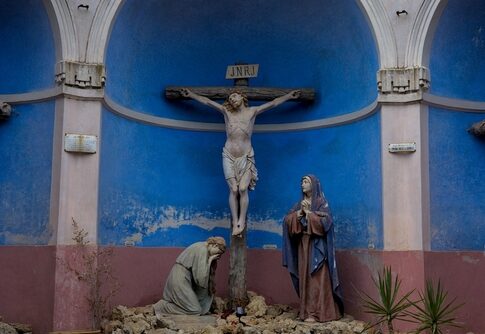The old church may be a thing of the past if the modernists get their way. Cardinal Jean-Marc Aveline’s election as president of the French bishops’ conference places a Francis ally with controversial views on evangelization at the helm of France’s Catholic Church. Aveline was close to the last papal head and has similar ideals with reformist tendencies. His election comes as the French church continues to address a massive sexual abuse crisis.
New Leadership for French Catholics
Cardinal Jean-Marc Aveline has been elected president of the French bishops’ conference, succeeding Archbishop Éric de Moulins-Beaufort as the Catholic Church in France continues responding to revelations of widespread sexual abuse. The election took place during the bishops’ spring plenary assembly in Lourdes on April 2, with Aveline set to officially assume leadership on July 1. Archbishop Vincent Jordy of Tours and Bishop Benoît Bertrand of Pontoise will serve as newly elected vice presidents.
Born in Algeria and serving as a priest in Marseille for over four decades, Aveline maintains a close relationship with Pope Francis, who created him a cardinal in August 2022 and visited his diocese in September 2023. This connection has established Aveline as the most prominent French cardinal in Rome, with his leadership term set for three years and the possibility of a single renewal.
Next we have Cardinal Aveline, born in 1958 in Algeria, of French descent and was made in Cardinal in 2022. He is against restricting the TLM which is particulaly prominent in France, blessing same sex couples but is pro Synodal governance. Even more impressive… pic.twitter.com/zWxlSyFWcg
— Dark Age Consultant (@JohnTzimiskes97) April 22, 2025
Controversial Approach to Evangelization
Aveline’s theological approach has generated significant debate within Catholic circles, particularly regarding his views on evangelization and interfaith dialogue. Vatican observers have noted his potential as a successor to Pope Francis, with some sources suggesting he is the Pope’s preferred candidate. His methodology involves retaining traditional Catholic terminology while reinterpreting doctrines through what critics call a modernist lens.
“Vatican insiders have told LifeSiteNews that Aveline ‘will be the next pope,’ and Edward Pentin and Diana Montagna’s Cardinalium Collegii Recensio states that he is ‘allegedly Pope Francis’ ‘favorite’ cardinal to succeed him.'”
Unlike traditional Catholic evangelization that emphasizes conversion to Catholicism, Aveline promotes a “dialogical foundation” for the Church’s mission. This approach views religious pluralism not as a challenge to overcome but as a source of ongoing revelation and part of divine mystery. Critics argue this stance fundamentally alters the historical Catholic understanding of evangelization and risks undermining the Church’s unique role in salvation.
12. Cardinal Jean-Marc Aveline
– Born: Dec 26, 1958, Sidi Bel Abbès, Algeria
– Cardinal from: Aug 27, 2022
– Archbishop of Marseille, FranceA theological expert dedicated to fostering interfaith dialogue, especially with Muslim communities, in his diverse region. pic.twitter.com/QvQyKoxlM4
— I am strange (@iamstrange4real) April 22, 2025
Continuation of Francis’ Interreligious Priorities
Aveline’s emphasis on interreligious dialogue aligns closely with Pope Francis’ priorities, including the Pope’s 2019 Abu Dhabi Declaration. That document controversially stated that “the pluralism and diversity of religions [is] willed by God,” a position some traditional Catholics find difficult to reconcile with historical Church teaching about evangelization and salvation through Christ alone.
“The 2019 Abu Dhabi Declaration, claiming that ‘the pluralism and diversity of religions [is] willed by God.'”
In addition to his interfaith work, Aveline has advocated for welcoming migrants, another key concern of Pope Francis. He takes leadership as the French Church continues addressing the fallout from a devastating 2021 report that estimated 330,000 minors were sexually abused within the Church since 1950, a crisis that prompted significant reforms under outgoing president Moulins-Beaufort.
Theological Tensions and Church Identity
The core of criticisms against Aveline’s approach centers on his apparent redefinition of the Church’s mission from conversion-focused evangelization to mutual accompaniment between faiths. Traditional Catholics express concern that presenting dialogue as a quasi-sacramental act, rather than a method leading to conversion, suggests an equality between Catholicism and other religions that contradicts historic Church teaching about Christ’s unique salvific role.
This theological tension reflects broader debates within Catholicism about how the Church should engage with modernity while preserving its doctrinal heritage. As Aveline assumes leadership in France—a historically Catholic nation now highly secularized—his approach to evangelization will likely influence how the Church positions itself in an increasingly pluralistic European religious landscape.


